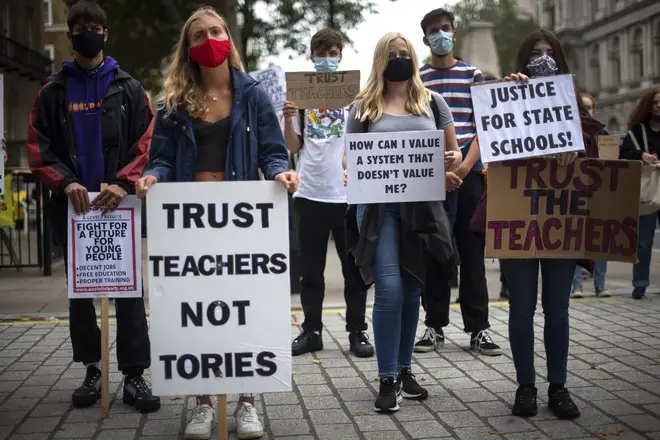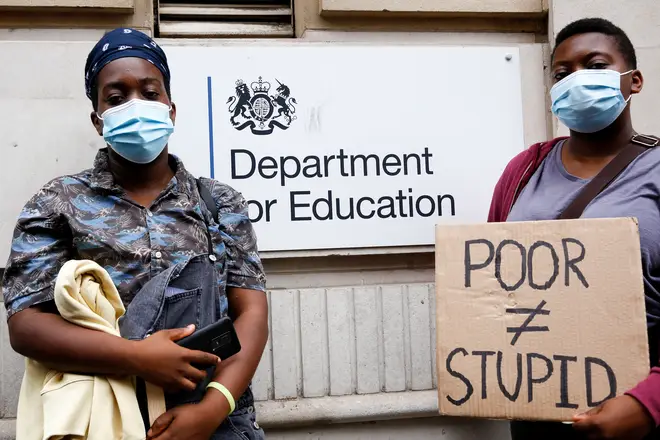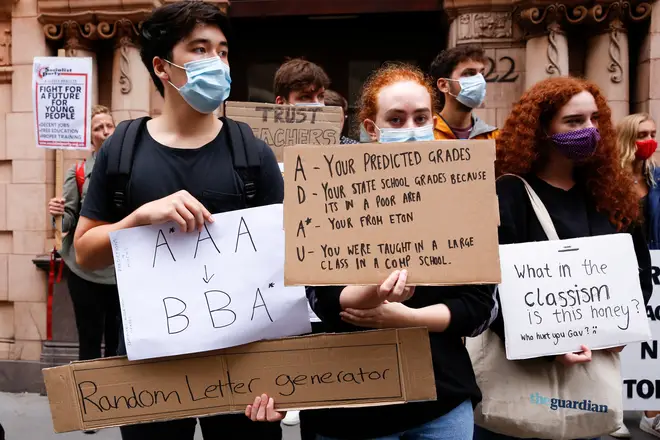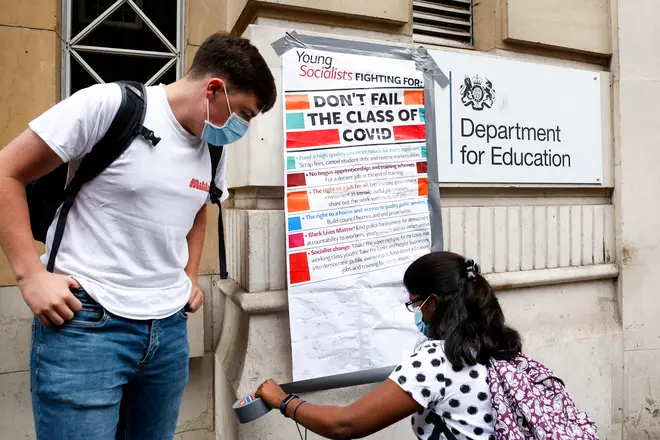
Oli Dugmore 4am - 7am
16 August 2020, 12:03

A-level students who feel let down by a “ridiculous and insane” marking system are launching legal action against England's exam regulator Ofqual.
Thousands of teenagers were left angered after nearly 40 per cent of predicted results were downgraded by the regulator's “moderation” algorithm, leaving many missing out on their first-choice universities.
Teachers were asked to submit grades based on pupils’ prior attainment and in rank order, but most were brought down by one grade to align with schools’ average from previous years. Some pupils were even cut from an A to a D.
At least seven teenagers are now in a court battle with the regulator. Student Curtis Parfitt-Ford has launched a legal bid against Ofqual to “force them to come up with a fairer system”.
Despite achieving the grades he was predicted, he said he could not stand by and watch his friends and cohort “getting the grades they don't deserve”, which in turn made his grades meaningless.
Read more: A-level student tells schools minister 'you've ruined my life'
Read more: Ofqual suspends appeals policy hours after it was published


His crowdfunding page has amassed more than £15,000 in donations in less than two days and he is being represented by a legal team with lawyers from Leigh Day and Foxglove.
“The Government is playing politics with our futures,” the 18-year-old from Ealing, west London, told PA news agency.
“Whatever happens this is going to affect thousands of students.”
In a 22-page letter to Ofqual, Mr Parfitt-Ford's legal team described the model used to determine grades as “irrational, arbitrary, fails to take account of relevant considerations” and claimed it was unlawful.
On Saturday, just hours after it published its criteria for appeals based on mock exam results, Ofqual said the policy was “being reviewed” by its board and that further information would be released “in due course”.

This latest turn of events has been met with confusion and dismay among students and families.
Mr Parfitt-Ford described the now-suspended appeals process as “ridiculous and insane”, but said he was glad that it was being reviewed.
“I wish they did it before releasing the policy in the first place,” he added.
“We are desperately trying to get clarity, with GCSE results due we fear this could potentially become even more chaotic, we are desperately hoping the Government will make a U-turn by then.
“We are not going to stand by and watch as potentially millions of GCSE students' futures are affected by this.”
Meanwhile, the Good Law Project is supporting six students over a judicial review of Ofqual's “failings”.
Read more: Government U-turn sees free appeals against A-level and GCSE results in England
Read more: Worcester College Oxford accepts all offer-holders regardless of A-level results

Caller got A*AA in her mocks but LSE will not offer her a place
Data from Ofqual shows independent schools saw an increase of 4.7% in the number of students securing A or A* grades from 2019, compared to 2% for state schools and just 0.3 percentage points for further education colleges.
It has particularly penalised high-performing pupils in disadvantaged areas, sparking accusations the system used has reinforced a "postcode lottery".
One of the students taking legal action, whose name was given as Michael, saw his grades fall from a predicted BBB to EEE, which left him “disheartened”.
He said: “Teachers are entrusted with the task of predicting students' grades and considering they are in a far better position to determine what level students are working at, it is abysmal to think that the Government, whose job it is to lead this country in the right direction, has allowed an algorithm to determine the futures of thousands of students.

Andy Burnham accuses government of discrimination in A-level results
“This injustice cannot and should not stand, and we are urging the Government to rethink this decision.”
The Good Law Project's crowdfunding bid to cover legal costs has reached more than £41,000.
Jolyon Maugham, director of the Good Law Project, said: “If you don't go to a successful school you don't deserve to succeed either - strip away all the science and that's what's delivered by the system Ofqual and Gavin Williamson have put in place.
“It's not fair, it's not good enough and hard-working students should not have to stand for it.”